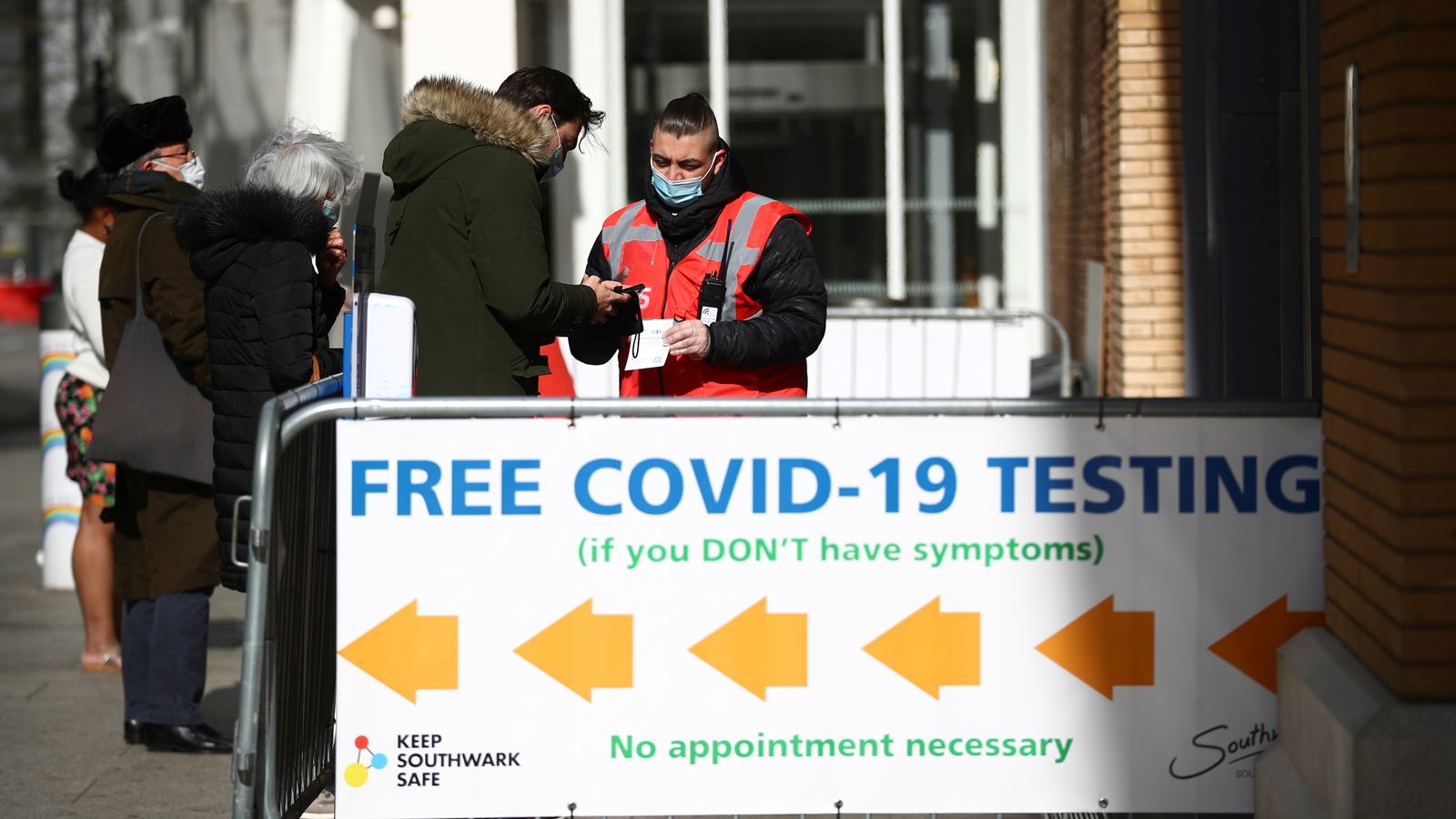Another 32,700 people have tested positive for COVID-19 in the UK and there have been 100 more deaths, according to the latest government figures.
The figure compares to 33,074 infections and 94 fatalities reported on Thursday.
Last Friday, there were 30,215 cases and 86 deaths as the UK topped six million coronavirus cases.
Yesterday, government figures indicated that more than 40 million people are now fully vaccinated and according to Friday’s figures, another 44,384 people have received their first dose of a COVID-19 jab and a further 192,559 people have received their second dose.
The total number of people now fully vaccinated stands at 40,206,029, and 47,215,352 have had one dose.
According to Public Health England (PHE) figures, coronavirus case rates have risen in most regions in England and among almost all age groups.
Case rates rose in all regions of England except the North East, and among all age groups except 10 to 19-year-olds, according to the latest PHE weekly surveillance report.
It comes as separate PHE data showed the COVID-19 vaccine rollout in England is estimated to have prevented more than 84,000 deaths.
PHE said on Thursday that 84,600 deaths and nearly 23.4 million coronavirus infections have been prevented as a result of the vaccination programme up to 6 August.
On Friday, England’s estimated R number fell slightly to between 0.8 and 1 – it was 0.8 to 1.1 last week.
An R number – or reproduction number – between 0.8 and 1.0 means on average every 10 people infected with the virus will infect between eight to 10 others.
When the figure is above one, an outbreak can grow exponentially – but when it is below one, it means the epidemic is shrinking.
Meanwhile, the daily growth rate of infections in England is estimated at between -4% and 0% per day, according to the figures from the UK Health Security Agency. That suggests the prevalence of the virus is shrinking.
Results from the Zoe COVID symptom study were released on Friday and it suggested that people pinged by the NHS app in England and Wales are up to four times more likely to have coronavirus than someone who isn’t alerted.
Those told to isolate had a 3.7 to 4.0 relative risk of testing positive, according to a survey of more than 750,000 contributors.
In Scotland, it was even higher, and people pinged by the country’s app were 10 times more likely to have the virus.
Meanwhile, a 33-year-old man from Surbiton in south London has been jailed for three-and-a-half years for pretending to inject an elderly woman with the COVID-19 vaccine and charging her £140.
David Chambers posed as an NHS worker before telling Kathleen Martin, 92, he had administered the jab at her home on 30 December, although he did not actually break her skin.
He defrauded Ms Martin of an initial £140 on the day, claiming the funds would be reimbursed by the NHS, before returning a few days later for a further £100.






















